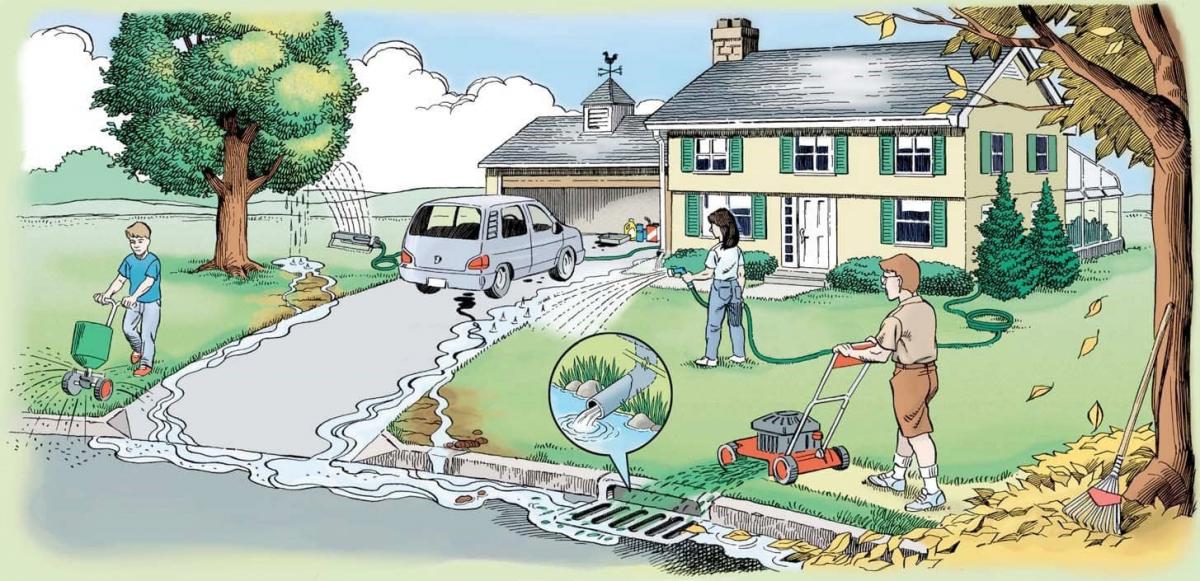Stormwater Management

What is Stormwater?
Stormwater is the water that runs off the land surface when it rains or snows. It can carry pollutants, such as sediment, nutrients, metals, bacteria, and chemicals, into nearby streams, lakes, and oceans. Stormwater can also cause flooding and erosion, damaging property and habitats.
Some Examples of Stormwater Pollutants:
- Animal waste, which can contain harmful bacteria, protozoa, and viruses that can cause gastrointestinal illnesses when ingested.
- Litter, such as fast-food wrappers, cigarette butts, Styrofoam cups, and plastic bags, which can harm wildlife and clog stormwater systems.
- Motor oil, which can leak from vehicles and contaminate waterways with toxic chemicals.
- Yard clippings, such as grass, leaves, and branches, which can decompose and release nutrients that can cause algae blooms and lower oxygen levels in water bodies.
- Fertilizers and pesticides, which can be washed off from lawns, gardens, and farms and increase the levels of nitrogen and phosphorus in waterways, leading to eutrophication and harmful algae blooms.
- Soapy car wash water, which can contain detergents, grease, dirt, and metals that can pollute waterways and harm aquatic life.
- Eroded sediment from construction projects, logging activities, dirt roads, and streambanks, which can carry nutrients, metals, and other pollutants into waterways and smother stream habitats.
- Compromised and/or failing septic systems.
Please Keep Grass Clippings Out of the Street
Residents and landscapers are reminded to keep grass clippings out of the street and the Township’s storm drains. Blowing grass and other yard debris into the sidewalk, street, or storm drainage system is also a violation of the Township’s littering and stormwater ordinances.
Grass clippings, leaves, and other lawn debris can clog storm drains, resulting in street and private property flooding. Storm drains flow directly to local waterways, and grass treated with pesticides and fertilizers can pollute our waterways. In addition to environmental harm, you may be creating a safety hazard. Wet clippings can create a slippery and dangerous surface for traveling motorcyclists and bicyclists when blown into the street.
Using a mulching mower puts clippings back into the turf and keeps the nutrients where they belong. Should you choose to use a discharging mower, please be sure to point the blower toward your property (away from the street) to prevent clippings from leaving the lawn. When finished mowing, please be sure to use a blower, broom, or rake to clean up any grass clippings or debris that have inadvertently made their way to the sidewalk or street.
Thank you for doing your part to help keep the Township of Eastampton and our waterways clean and safe!
